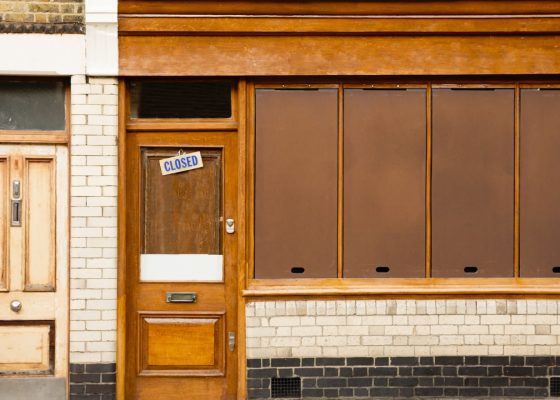As Cohealth prepares to shut its doors, one patient’s tragic story exposes a health system built for the average voter and blind to those who need it most.
Until last week I had never heard of Cohealth, a non-profit community health clinic that quietly goes about looking after some 12,500 people in Melbourne.
When news broke that the financially strapped group had to scale back services – including closing one of its clinics altogether – we saw the inevitable outcry from the doctors that work there and peak bodies like the RACGP, the AMA Victoria, the Australian Nursing and Midwifery Federation and the Doctors Reform Society.
We also learned that this service cares for some of the most marginalised and disadvantaged people in the area. Mental illness, homelessness, serious social disadvantage, addiction, chronic illness, trauma, refugee health, substance dependence and poverty are hard enough on their own, but these patients more often than not have multiple comorbidities.
For many of them, without Cohealth there is nowhere to go.
The group was founded in 2014 with the merger of three existing community health clinics and operates as a non-profit, with funding – at least at one point – from local, federal and state governments. It works on a mixed-billing system and turns no one away if they can’t afford to pay.
But the model had become unsustainable, as Cohealth CEO Nicole Bartholomeusz explained when it was announced on 16 October that Cohealth’s Collingwood clinic would be shutting its doors in December, and that it would also stop delivering GP services at two other Melbourne sites, Fitzroy and Kensington. It’s understood that the Footscray clinic will maintain GP services.
“This decision reflects multiple, complex pressures including decades of underinvestment, ageing infrastructure, and a funding model that doesn’t match the reality of the need or the type of care that is required,” she said.
“These compounding issues have made it impossible to sustain services that our communities rely on. We are funded for standard care, but we’re servicing extraordinary need.”
The issue has remained in the headlines this week, with appeals for state and federal governments to step in to keep the doors open.
Doctors Reform Society president Dr Tim Woodruff described Cohealth’s struggles “an appalling sign of a lack of concern by both state and federal Governments about the health of some of the most disadvantaged Australians”.
“Now the usual game will be played by the state and federal governments,” he said.
“’It is not our fault’, each will say. This is a pathetic response to a potential life-threatening crisis in access to care.
“The respective health ministers need to be locked in a room and kept there until they come up with a solution. Sadly, nothing remotely like that will happen. Patients will die or suffer. Governments will pretend they did what they could.”
It was this quote that prompted a Cohealth patient to reach out to HSD and The Medical Republic late on Thursday night.
Alice (not her real name) has been a patient at one of the clinics since before it rebranded to Cohealth. That’s some 15 years, give or take.
“I have complex needs to say the least. A history of decades of homelessness, C-PTSD, heart disease, type 1 diabetes, stage three cancer without the status of remission and physical disability. And that’s just the major things,” she says.
Alice is in her early 50s, articulate and self-educated and caring for herself in her home about an hour from her clinic. She literally has no one in her personal life – no friends, no family – in fact her GP is listed as her emergency contact.
“I see my GP every four weeks without fail,” she says. “My GP knows if I don’t turn up it means I’m dead. I know I’m not an ‘easy’ patient to have. I’m a traumatised person who doesn’t trust most people.
“I trust my GP more than anyone I’ve known in my life. That trust took years to build.”
Alice had an appointment with her GP the day the news broke that the clinic would have to close.
“My GP didn’t have anyone in her office and she called me and I saw that she had been crying. She didn’t cry in front of me, but I could tell by her eyes,” Alice recalls.
“I think there was just shock and disbelief. They’d only found out at 11am that morning and they were trying to process it all.”
Alice is crystal clear about what the closure means for her. The loss of her GP – her anchor to the world – will cost her her life.
“The closure of Cohealth means I can die two ways,” she says.
“I can suffer for a short while then die or just take my own life and not drag out the suffering.
“I’m not going to be able to find another bulk-billing GP who’s going to take on me with so many complex support needs.”
She blames the governments who refuse to step in and fund Cohealth appropriately and long-term for what she says is the only way for her.
“They signed my death certificate actually. My life clearly never mattered to them. So too won’t my death,” she says.
Whether or not the governments come in with a rescue package matters not. While it might save Alice’s life, she will forever be a canary in the coalmine for what is so deeply wrong with our health system.
The politicians and bureaucrats continue to cater to the average voter and not to the people who really need help – blind to the fact that not everyone fits into a neat (and expensive) little UCC box, or a mental health clinic or even an emergency department.
Politicians and policymakers need to spend an hour or two really listening to people like Alice to understand the realities of Australia’s healthcare needs, even the parts of it that might make them squirm with discomfort.
The reality is that life can be messy and tragic and lonely and filled with health challenges, especially for our most vulnerable and marginalised Aussies.
But that doesn’t mean we glance away and pretend they don’t exist.
Instead, we need to sit with them in their pain and their stories, and it will soon become apparent that what they need doesn’t have to cost billions of dollars or require the construction of a shiny new hospital.
These Aussies need more than bandaids. A temporary bailout for Cohealth won’t cut it if we wind up in the same place this time next year.
Governments and bureaucrats need to completely change the way general practice, mental health services and primary care is funded and that means solid foundations. At the moment all we have is a reactionary system that resembles a giant Jenga game.
Related
At the last election Albo merrily waved his Medicare card around as the answer to all of healthcare’s problems.
How is that little green card going to help people like Alice if there is nowhere for them to go and no one to wave it at?
Inevitably many of these people will wind up needing emergency care because their primary care no longer exists. Which ends up costing the system more – and even more importantly, will cost lives.
There really is no word to describe how abhorrent and heartbreaking it is to hear a fellow human say that they might choose to end their life if they can no longer see their GP.
What is also tragic is the pain she carries for the many, many Cohealth patients who are unable to speak up like she can, she says.
“What worries me are the people who can’t articulate how they feel, what they think, the impact on them. You know, the faceless, nameless people that don’t exist to anyone except Cohealth,” she tells me.
“You know, the people out there that could have had more potential to do something with their lives, who are half my age, who will have zero potential without the necessary care given to them.
“I think the government is so far removed from understanding that it’s not as simple as going in and saying I need a script for that.
“It takes time to build up trust when you’ve lived in a world of mistrust.”
Alice says she doesn’t want to suffer more than she has already in her life, but the thought of living without the professional therapeutic relationship she has with her GP is untenable.
She wants governments and bureaucrats to hear her voice and know that she is one of perhaps many thousands of patients whose lives will be permanently damaged without Cohealth.
“We are the marginalised, the disenfranchised, the chronically ill, mentally ill, homeless and everything else,” she says.
“But we should matter as much as anyone else.”




